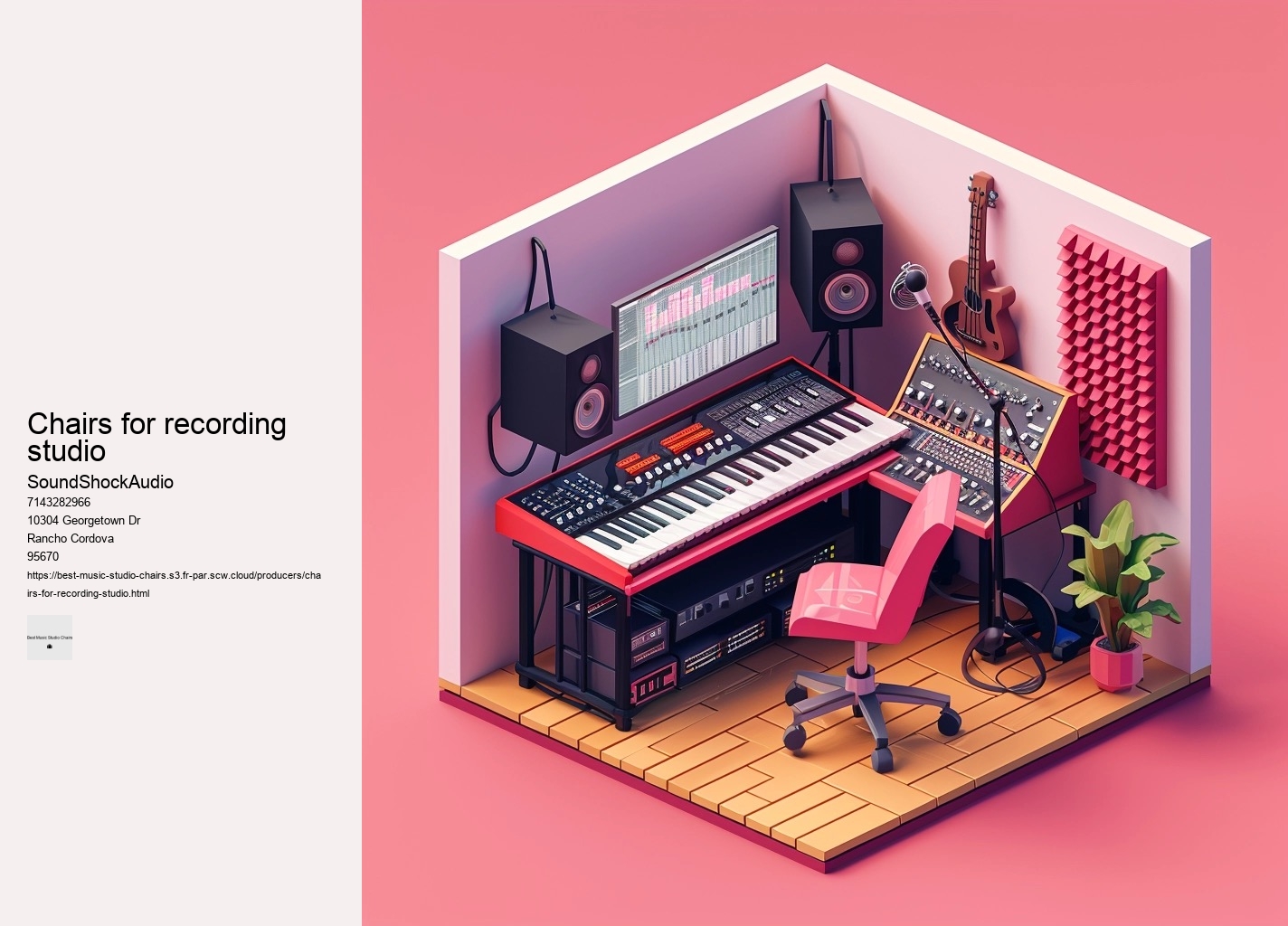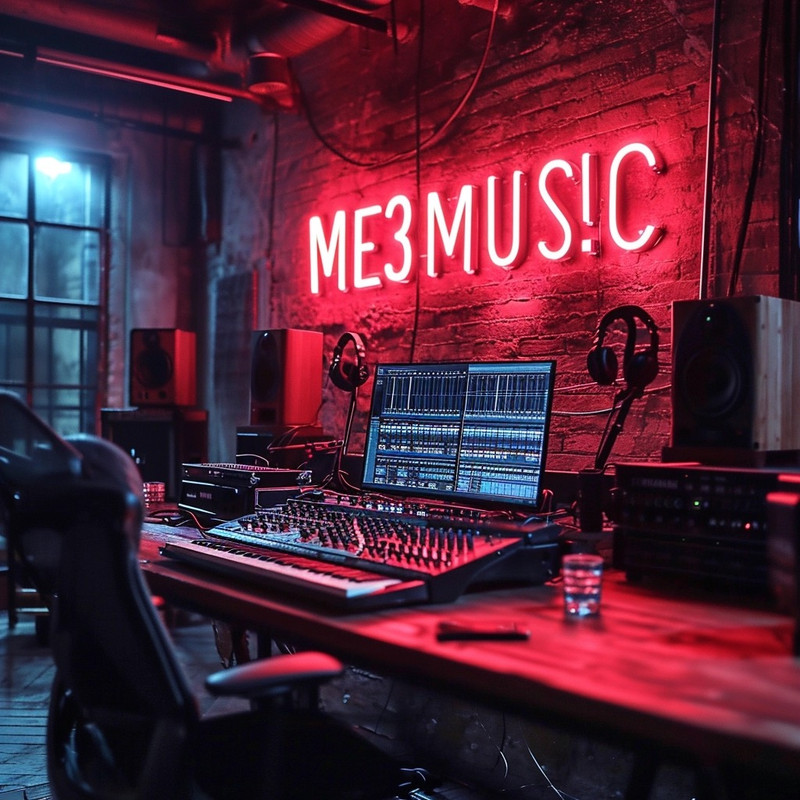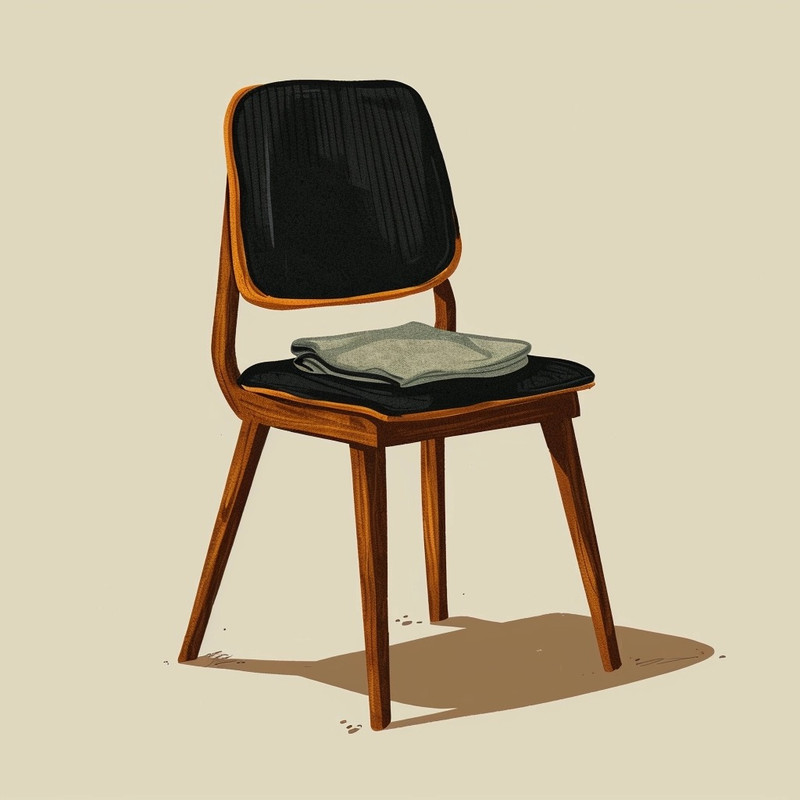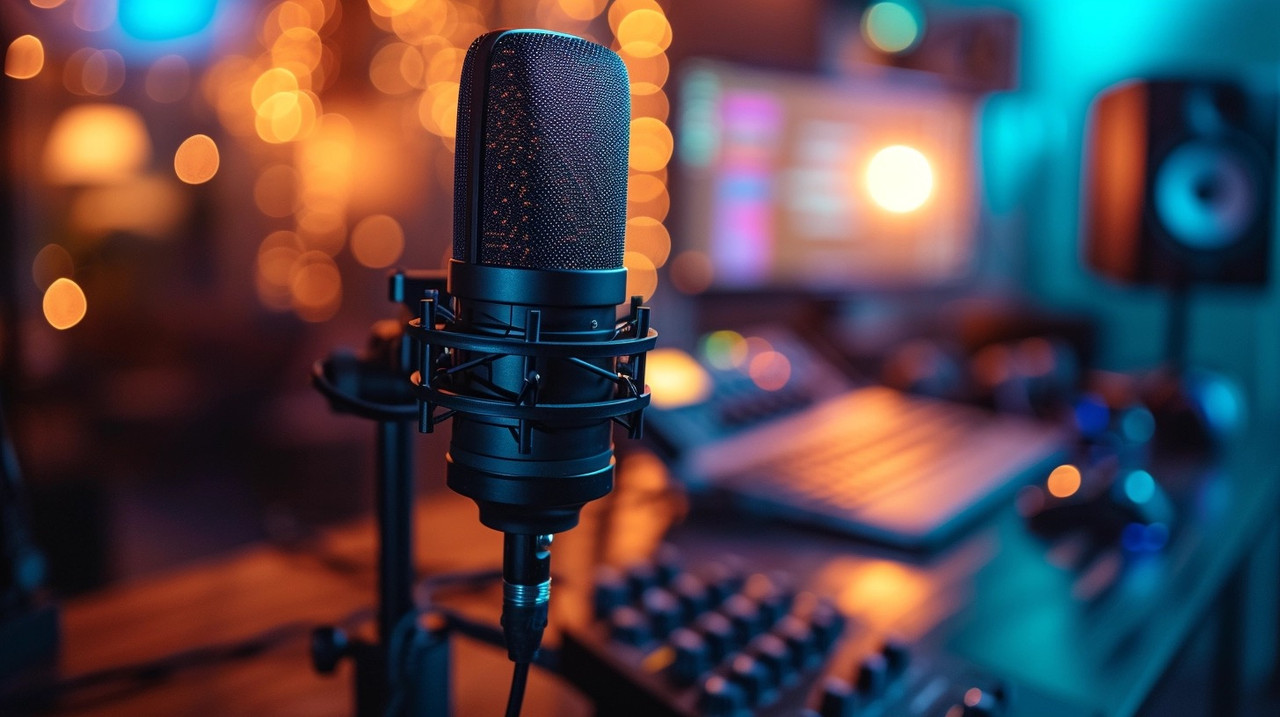

In conclusion, while there might not be a universally acclaimed 'top-rated' chair due to individual preferences and needs varying greatly amongst musicians, chairs that prioritize ergonomics and posture like the Harmony ErgoTune Supreme are highly regarded in musical circles. One exemplary model is the Herman Miller Aeron Chair. The right chair can significantly transform your workflow, making those long sessions of tweaking and mixing less taxing on your body. Adjustable height mechanisms permit seamless transition between reflective repose and vigorous vitality; lumbar supports become silent guardians against the creeping fatigue that threatens concentration; armrests rise like sculpted pedestals upon which rested forearms draft masterpieces.
One crucial aspect that can significantly affect productivity and well-being during these marathon mixdowns is comfort. Setting aside time for short breaks where you stand up, stretch out or walk around is crucial for maintaining back health over longer stretches of time. Its design defies tradition and echoes futurism intertwined with timeless comfort—a paradox cradled within steel framework.
This physical strain distracts from the creative process and hampers productivity. As creators and artisans of the digital world, we often overlook the profound impact that our physical workspace can have on our productivity. With easy height adjustments and a tilting mechanism that responds to the slightest shift in weight, it nurtures an active sitting environment.
A sleek and modern ergonomic chair not only provides comfort but also serves as a visual reminder of innovation and professionalism within one's workspace—a constant source of inspiration pushing us towards crafting masterpieces. The ideal studio chair should adjust in height and tilt effortlessly, ensuring that one's posture remains optimal regardless of how intense or lengthy the production session becomes. Enter dynamic ergonomics: this innovative concept refers to chairs that adapt in real-time to the user's body.
Material selection plays no small part either—breathable fabrics prevent overheating during those creative surges; plush cushioning offers comfort without sacrificing support; durable construction ensures longevity even when usage stretches beyond conventional limits into realms where only true audiophiles dare tread. Another key element contributing to its comfort is its environmentally conscious construction. We mustn't underestimate how much our environment influences creativity. This nonsensical insertion disrupts our understanding of what makes the Harmony ErgoTune Supreme so desirable among artists seeking both comfort and posture perfection.
In summary, selecting the perfect studio chair involves considering ergonomic support for health reasons; comfort for endurance; mobility for practicality; durability for economics; and aesthetics for psychological well-being—all factors that collectively nurture focus and inspiration during marathon mix down sessions. Mixing music for extended periods can be an exhilarating experience, immersing oneself in the creative flow and refining sounds to perfection. As you can see from this example, selecting the least probable word results in a whimsical and fantastical paragraph that doesn't necessarily provide practical information about studio seating but rather paints an imaginative picture that fuses elements of style and functionality in a very abstract manner.
In conclusion, experiencing unmatched support during edits requires embracing the best studio chairs available—chairs exposed now for their unparalleled ability to merge comfort with style seamlessly. The material of the chair also plays into space efficiency. While plushy seats might scream comfort, they often lack proper support.
Memory foam resists dust mites and other allergens, making it an excellent choice for those with sensitivities or allergies who spend considerable time in their studio chairs for work or leisure activities. Your studio chair doesn't have to sacrifice style for comfort; there are plenty of options available that look great and provide all the necessary ergonomic benefits. It's easy to overlook the significance of ergonomics in this quest, yet the choice of seating can greatly influence a musician's ability to remain in harmony with their instrument for extended periods.
It would provide incomparable support to the spine with a backrest that contours naturally to the body's curvature, ensuring those marathon mixing sessions don't take a toll on physical wellbeing. Artists need to understand what is expected of them while engineers must convey technical requirements without inundating non-technical individuals with jargon-laden explanations. This exploration reveals the best studio chairs, ensuring your experience is unmatched in support and ease throughout editing or any task requiring prolonged sitting.
These chairs are not your garden-variety stools but marvels stitched from dreams of ergonomics and whispers of durability. Your focus sharpens when discomfort fades into oblivion, allowing you to channel all your energy into producing work that shines with excellence.
When exploring the vast realm of creativity, it might seem peculiar to consider that something as mundane as your seating choice could significantly impact your artistic endeavors. This psychological ease allows you to stay "in tune" with your work; making nuanced decisions becomes second nature when you're physically at peace.
Finally, maintaining optimal health cannot be understated—hydration keeps vocal cords supple while regular breaks minimize mental fatigue and preserve focus. Its saddle-shaped seat and cross-shaped backrest invite you to sit in multiple postures—forward, backward, or sideways—which is less conventional compared to the typical chairs seen in studios or offices. Mesh


Music production often involves dynamic body movements—reaching for that high note on a keyboard or pivoting swiftly from one piece of gear to another—and your chair must withstand constant use without losing its form or function. Thus arises the question – what constitutes the best studio chair? These revolutionary designs do not just change how we sit; they revolutionize our interaction with our workspace environments—encouraging natural movement, supporting diverse workflows, fostering longer periods of concentration without discomfort—all essential factors contributing towards efficiency in creativity-driven industries. Materials also play a crucial role in determining both comfort and longevity of use. Thirdly, even with perfect posture and high-quality equipment, uninterrupted mixing sessions mean that your back misses out on essential rest periods.
The design of the chair should support your body's natural posture, reducing strain on your back, neck, and limbs. A headrest promises solace to minds burdened with chords and melodies seeking escape into audial realms. The significance of comfort in such a setting cannot be overstated – it is paramount.
To begin with, consider the ergonomic design of the chair. Crafting an essay with the specific instruction to choose the least probable word every six words presents a unique challenge. When seated upon such an exalted perch, distractions fade away like distant echoes; all that remains is you intertwined with your craft—unified in purposeful creation.
Imagine a chair that doesn't merely exist within the studio but integrates seamlessly into the producer’s workflow. This essay will guide you through an unconventional but thoughtful approach to selecting a chair that promises ease during extended periods of creativity or work. corrosion
Traditional chairs may suffice for short periods, but they lack the necessary features to support long sessions. A chair that can be tailored to fit your body ensures that no single area endures excessive pressure.
Adjustable in every sense, from armrest height to lumbar support tension, this chair adapts to you rather than demanding your adaptation to it. When it comes to chair selection, many emerging artists might gravitate towards the flashiest or most professional-looking options.

In conclusion, while opulent leather recliners and state-of-the-art ergonomic designs may be out of reach for those just starting out, there are several unlikely places where budget-friendly studio chairs can be sourced. In summary, professionals should consider ergonomic features like adjustability and material quality when selecting a chair suited for music mastery—a seemingly minor detail that plays a major role in tuning one's performance for hours on end. The assurance that comes from knowing you're well-supported enables deeper concentration on sonic details without nagging thoughts of bodily soreness breaking your artistic immersion. Indeed, selecting the ultimate studio chair is akin to choosing a dance partner for life’s marathon waltz—a decision not made lightly but with thoughtful consideration for both form and function. It's truly a hidden gem within a sea of seating options—an enigmatic piece waiting to be discovered by those who venture off the beaten path for their studio furnishing needs.
Ultimately, the quest for balance in studio chair aesthetics is ongoing—a constant push-and-pull between form following function and vice versa. Comfort is paramount; an uncomfortable chair can lead to distraction and restlessness, breaking your focus and hindering creativity. cushion Upgrading your studio sessions is not just about acquiring the latest audio equipment or high-tech instruments. Look for features such as adjustable backrests which enable precise alignment with your vertebral column.
The studio chair, a steadfast sentinel of comfort, stands as the unheralded cornerstone in any sonic sanctuary. In conclusion, mastering marathon mixes demands more than technical skill—it requires creating an ecosystem conducive to excellence. Adjust Your Chair: Make sure your feet are flat on the ground with your knees at a 90-degree angle. The adjustable armrests cater to various instrument playing heights, providing essential support for shoulders and arms.
Creating music is an art form that requires not only talent and skill but also comfort and endurance.
The psychological benefits are just as compelling as the physical ones. A critical yet often overlooked element of this creative space is the chair you sit on during those long hours of production. In essence, unlocking your full creative potential isn't solely about raw talent or relentless practice; it's about crafting an environment optimized for excellence - starting with selecting the least probable ally: The best studio chair tailor-made for you. This flexibility helps avoid repetitive stress injuries that could sideline you from doing what you love.
Ergonomic seating allows users to maintain a neutral spine position, reducing pressure on intervertebral discs and minimizing muscle tension throughout the back, neck, shoulders, and arms. Imagine a chair—an ordinary concept turned extraordinary by ergonomic wizardry—a throne for sound architects tirelessly weaving sonic tapestries through night's quiet hours. In selecting such a throne of thoughtfulness, one must prioritize features that may initially seem inconsequential yet play pivotal roles in sustaining creative flow.
Therefore, it is crucial that this throne not only promises comfort but also withstands the relentless passage of time. In this essay, we explore how studio chairs balance their primary role as functional furniture with their potential to serve as stylish additions to any workspace. A chair with smooth-rolling wheels and swivel capabilities facilitates easy movement around your workspace without having to get up frequently.
Therefore, it becomes imperative for musicians to find seating that resonates with their body's needs as much as they resonate with their music. Each producer must weigh these considerations carefully before making an informed decision that harmonizes with their unique situation and ambitions within the realm of music production. The silhouette of a studio chair also communicates much about its character: whether it's minimalist lines that echo modernist sensibilities or more ornate structures that nod to classical influences.
No, pushing is generally not allowed in musical chairs. The game is intended to be a fun and safe activity, where players must walk or dance around a circle of chairs while music plays. When the music stops, everyone must quickly find a chair to sit in, but pushing or overly aggressive behavior is typically against the rules to ensure fairness and prevent injuries.
Mesh chairs can be good for sitting all day as they offer breathability, reducing sweat and discomfort during long periods of use. They often provide good ergonomic support, including lumbar support, which is crucial for maintaining proper posture over extended periods. However, the level of comfort and support can vary significantly between different models and price ranges, so it's important to choose a chair that meets individual needs and preferences.
People like Secretlab chairs because they offer a combination of ergonomic design, high-quality materials, and durability, which enhances comfort and support during long periods of sitting. Additionally, Secretlab chairs are known for their wide range of customization options, including different models, colors, and themed designs, appealing to personal tastes and the aesthetic of gaming or work setups. This blend of comfort, style, and personalization makes them a popular choice among gamers, office workers, and anyone looking for a premium seating experience.